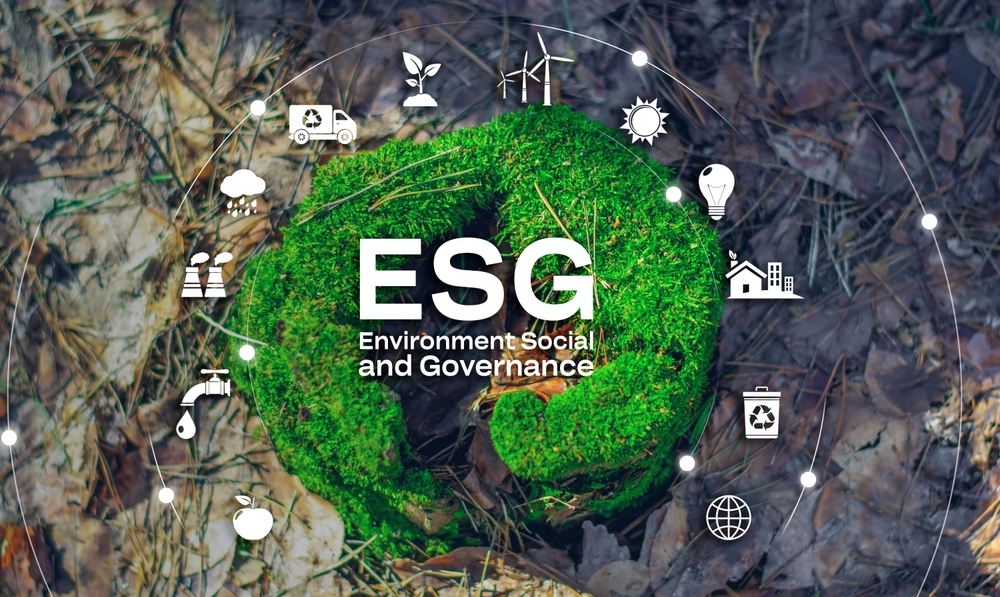In an era where the world’s collective gaze is increasingly fixated on sustainability and ethical business practices, there arises a pivotal question: What lies at the intersection of responsible commerce and the dynamic realm of commercial property? Enter ESG reporting, the guiding star illuminating this intriguing junction. ESG, the acronym for Environmental, Social, and Governance, represents a trio of pivotal factors that dissect a company’s commitment to sustainability and ethical conduct. Within this blog, we will embark on a journey through the fascinating world of ESG reporting. As we navigate its nuances, decipher its components, and unveil its profound implications, we’ll uncover why it has evolved into nothing short of a strategic necessity for businesses operating in the bustling commercial property sector.
Understanding ESG Reporting
ESG reporting is the systematic process of measuring, disclosing, and communicating a company’s performance across the three key dimensions: Environmental, Social, and Governance.
- Environmental: This dimension covers aspects related to the company’s environmental impact. It includes factors such as energy efficiency, carbon emissions, water usage, waste management, and resource conservation. ESG reporting assesses how environmentally responsible a company is in its operations.
- Social: The social dimension evaluates a company’s relationships with its stakeholders, including employees, communities, customers, and suppliers. It assesses factors like community engagement, labor practices, employee welfare, diversity and inclusion, and product safety. A strong social performance indicates a commitment to social responsibility.
- Governance: Governance refers to the systems and processes that guide the company’s decision-making and ensure ethical behavior. It includes transparency, ethical behavior, board diversity, executive compensation, and shareholder rights. Good governance practices are crucial for building trust with investors and stakeholders.
The purpose of ESG reporting is to provide stakeholders with a comprehensive view of a company’s non-financial performance. This includes investors looking for sustainable investment opportunities, customers seeking ethically responsible products and services, and regulators concerned with corporate responsibility.
ESG Reporting Frameworks
To standardize ESG reporting and make it more meaningful and comparable, various frameworks and guidelines have been developed. Some of the most widely recognized frameworks include:
- Global Reporting Initiative (GRI): GRI provides a comprehensive set of standards for reporting on a company’s economic, environmental, and social impacts. It helps organizations disclose information that is relevant to their stakeholders.
- Sustainability Accounting Standards Board (SASB): SASB focuses on industry-specific standards, enabling companies to report on sustainability issues that are most material to their business and sector.
- Task Force on Climate-related Financial Disclosures (TCFD): TCFD emphasizes the disclosure of climate-related risks and opportunities, helping investors understand how climate change could affect a company’s financial performance.
These frameworks help companies structure their ESG reporting and ensure that they address the most critical issues relevant to their industry and stakeholders. For commercial property businesses, these frameworks are especially valuable as they provide guidelines for addressing sector-specific challenges and opportunities.
Benefits of ESG Reporting for Commercial Property
Now, let’s explore why ESG reporting has become crucial for the commercial property sector:
- Enhancing Reputation and Brand Value: Commercial property companies that prioritize sustainability and responsible practices gain a positive reputation in the market. This reputation attracts both investors and tenants who are increasingly seeking properties that align with their ESG values. A strong reputation for responsible practices can also lead to positive media coverage, further enhancing a company’s brand image.
- Attracting Responsible Investors and Tenants: ESG reporting can be a magnet for responsible investors and tenants who prioritize sustainability. These stakeholders are more likely to invest in or lease properties from companies that demonstrate a commitment to environmental and social responsibility. As ESG considerations become more central to investment decisions, companies that excel in ESG reporting stand to benefit significantly.
- Reducing Operational Costs: ESG reporting encourages companies to implement sustainability measures, such as energy-efficient systems and green building practices. These initiatives not only contribute to a greener environment but also reduce operational costs over time. For commercial property businesses, energy-efficient buildings can result in lower utility expenses and increased tenant satisfaction, leading to higher occupancy rates and rental income.
- Mitigating Risks: ESG reporting helps companies identify and address potential risks associated with regulatory changes and climate-related events. By proactively addressing these risks, commercial property businesses can safeguard their investments and portfolios. For example, identifying climate-related risks can lead to strategic decisions, such as retrofitting buildings to withstand extreme weather events or diversifying property holdings to reduce exposure to vulnerable regions.
- Stakeholder Engagement: ESG reporting fosters transparency and encourages stakeholder engagement. Engaging with stakeholders, including tenants, local communities, and investors, can lead to valuable insights and partnerships that drive long-term success. For instance, involving tenants in sustainability initiatives can lead to collaborative efforts to reduce energy consumption and minimize waste, benefiting both the environment and the bottom line.
Challenges of ESG Reporting in Commercial Property
While the benefits of ESG reporting are clear, commercial property businesses face several challenges in implementing effective ESG reporting:
- Data Collection and Verification: Gathering accurate and relevant ESG data can be a complex and resource-intensive process. Verification of this data to ensure its accuracy and credibility is equally challenging. Commercial property companies often deal with extensive data sets related to building performance, energy usage, and tenant behavior, making data collection and verification processes critical yet intricate.
- Balancing Costs and Sustainability: Balancing the short-term costs of sustainability initiatives with the long-term benefits can be a challenge. Some companies may be hesitant to invest in sustainability due to concerns about immediate financial impacts. However, it’s essential to recognize that sustainable practices can lead to cost savings over time, making them a valuable long-term investment.
- Meeting Diverse Stakeholder Expectations: Different stakeholders have varying ESG expectations, making it challenging to meet everyone’s demands. Finding a balance that satisfies the diverse needs of investors, tenants, and communities is crucial. Commercial property companies must engage with stakeholders to understand their specific ESG concerns and tailor their reporting and initiatives accordingly.
Regulatory Landscape
Government regulations and policies are increasingly pushing commercial property businesses towards ESG reporting. Governments worldwide are recognizing the importance of sustainability and are implementing measures to incentivize ESG practices. Non-compliance with these regulations can lead to financial penalties and reputational damage, further emphasizing the importance of ESG reporting.
Steps to Implement ESG Reporting
For commercial property companies looking to initiate ESG reporting, here are the key steps to follow:
- Conduct a Materiality Assessment: Identify the most relevant ESG issues for your business and stakeholders. Focus on what matters most in your industry. Engage with key stakeholders, including tenants, investors, and local communities, to understand their priorities.
- Set Clear ESG Goals and Targets: Define specific and measurable ESG goals that align with your business strategy. These goals will serve as a roadmap for your sustainability efforts. Ensure that your goals are realistic and time-bound, allowing for meaningful progress tracking.
- Establish Data Collection and Reporting Processes: Implement systems for collecting, analyzing, and reporting ESG data. Ensure data accuracy and transparency in your reporting. Consider using digital tools and platforms that facilitate data collection and reporting, making the process more efficient and accurate.
- Engage Stakeholders and Communicate Progress: Engage with your stakeholders to understand their expectations and concerns. Communicate your ESG initiatives and progress transparently to build trust. Create a structured communication plan that includes regular updates and reports to keep stakeholders informed and engaged.
Future Trends in ESG Reporting for Commercial Property
As the ESG landscape continues to evolve, several trends are shaping the future of ESG reporting in the commercial property sector:
- AI-Driven Data Analytics: Artificial intelligence and data analytics are increasingly being used to process and analyze large volumes of ESG data, providing valuable insights for decision-making. AI can help identify trends and correlations within ESG data that may not be evident through traditional analysis.
- Blockchain for Transparency: Blockchain technology is being explored to enhance transparency in ESG reporting by securely recording and verifying ESG data. Blockchain can provide an immutable record of sustainability achievements, increasing trust among stakeholders.
- Integration with Financial Reporting: ESG reporting is becoming more integrated with financial reporting, highlighting the interconnectedness of sustainability and financial performance. Companies are recognizing that ESG factors can have a direct impact on financial outcomes and are incorporating this information into their financial disclosures.
Conclusion
In conclusion, ESG reporting has emerged as a powerful tool for commercial property businesses to demonstrate their commitment to sustainability and responsible business practices. By measuring and disclosing their environmental, social, and governance performance, companies in this sector can enhance their reputation, attract responsible investors and tenants, reduce operational costs, and mitigate risks. As government regulations continue to evolve, ESG reporting is no longer optional but a strategic imperative for commercial property businesses looking to thrive in a sustainable future. Embrace ESG reporting, and join the movement towards a more responsible and sustainable commercial property industry.
Elevate your property’s energy efficiency with VertPro.com, your one-stop solution for Commercial Energy Audits, Benchmark Compliance consultancy, and our cutting-edge Construction Marketplace. As industry pioneers, VertPro empowers Building Owners and Property Managers nationwide with innovative SaaS technology-based solutions. From Energy Benchmarking to Energy Audits/RCx Plus, we ensure compliance with over 50 Energy Benchmarking and Energy Efficiency Laws.
Don’t miss out on maximizing your property’s energy potential and value. Explore VertPro.com’s comprehensive solutions today and let us help you unlock the transformation your property deserves.



